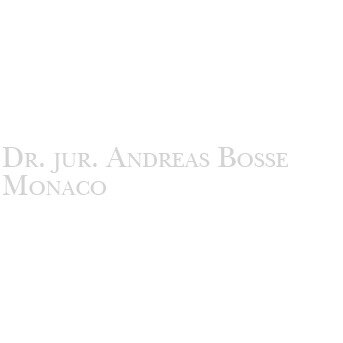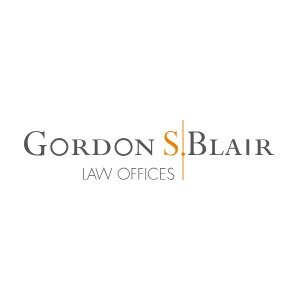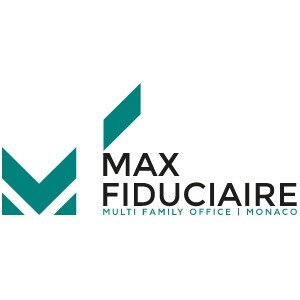Best Probate Lawyers in Monaco
Share your needs with us, get contacted by law firms.
Free. Takes 2 min.
List of the best lawyers in Monaco, Monaco
About Probate Law in Monaco, Monaco
Probate law in Monaco deals with the administration of the estate of a deceased person. This legal process ensures that a deceased person's assets are distributed according to their will or, if no will exists, according to intestacy laws. Probate handles various aspects, including validating wills, inventorying estate assets, paying debts, and distributing the remaining assets to rightful heirs.
Why You May Need a Lawyer
People often seek legal help with probate due to the complexity of Monaco's probate laws and procedures. Common situations where you may need a lawyer in probate include:
- Verifying the validity of a will.
- Handling disputes over the distribution of assets.
- Managing the estate's financial obligations, such as paying debts and taxes.
- Guiding executors or administrators through their legal duties.
- Navigating the laws and regulations governing international assets.
- Providing legal representation in court if necessary.
- Ensuring that the estate administration complies with local laws.
Local Laws Overview
Monaco has unique laws regarding probate and succession. Key aspects include:
- Forced Heirship: Monaco law mandates that a portion of the estate must be passed to certain heirs, regardless of the will's contents. Children must receive at least half of the estate if there is one, and two-thirds if there are more.
- Wills: To be valid, wills in Monaco must meet specific requirements. For instance, they should be written and signed, with additional stipulations for different types of wills (holographic, notarial, international).
- International Considerations: If the deceased had assets in multiple countries, Monaco law provides guidelines on how to proceed, including the possibility of requiring an executor familiar with international law.
- Estate Administration: Executors or administrators must fulfill specific duties, such as inventorying assets, paying debts and taxes, and distributing the estate under Monaco's legal framework.
Frequently Asked Questions
What is probate?
Probate is the legal process of administering and distributing a deceased person's estate according to the will or, if no will exists, according to local intestacy laws.
Do I need a lawyer for probate in Monaco?
While not legally required, having a lawyer can simplify the process, particularly if the estate is complex or involves disputes.
How long does probate take in Monaco?
The duration varies based on estate complexity, but it typically ranges from several months to over a year.
What happens if the deceased didn't leave a will?
If no will exists, Monaco's intestacy laws govern the distribution of the estate, ensuring assets go to the closest relatives.
Can a foreigner inherit property in Monaco?
Yes, foreigners can inherit property, but there may be additional legal considerations, particularly regarding taxes and international laws.
What are the executor's duties?
The executor is responsible for managing the estate, which includes inventorying assets, paying debts, filing taxes, and distributing assets to heirs.
Can probate be contested?
Yes, probate can be contested, often on grounds such as the validity of the will, improper execution, or claims of undue influence or fraud.
Are there taxes on inherited property in Monaco?
Yes, there are inheritance taxes in Monaco, but the rates vary based on the relationship to the deceased and the value of the estate.
What if the deceased has assets in multiple countries?
Monaco provides legal guidelines for international assets, which may involve coordination with foreign probate processes and laws.
How can I ensure my will is valid in Monaco?
To ensure a will's validity, follow Monaco's specific legal requirements, such as proper signing and witnessing. Consulting a lawyer is advisable.
Additional Resources
For further assistance with probate in Monaco, you may refer to the following resources:
- Monaco Bar Association: Provides a list of qualified lawyers who specialize in probate law.
- Monaco's Judicial Services: Offers official information on the probate process and legal requirements.
- International Estate Planning Organizations: Provide guidance on handling assets across different jurisdictions.
Next Steps
If you need legal assistance with probate in Monaco, consider the following steps:
- Consult a Lawyer: Seek a reputable probate lawyer familiar with Monaco's legal system.
- Prepare Documentation: Gather all relevant documents, such as wills, asset inventories, and debtor information.
- Schedule a Consultation: Discuss your situation and get professional advice tailored to your needs.
- Follow Legal Advice: Adhere to the lawyer's guidance to ensure compliance with local laws and smooth administration of the estate.
Lawzana helps you find the best lawyers and law firms in Monaco through a curated and pre-screened list of qualified legal professionals. Our platform offers rankings and detailed profiles of attorneys and law firms, allowing you to compare based on practice areas, including Probate, experience, and client feedback.
Each profile includes a description of the firm's areas of practice, client reviews, team members and partners, year of establishment, spoken languages, office locations, contact information, social media presence, and any published articles or resources. Most firms on our platform speak English and are experienced in both local and international legal matters.
Get a quote from top-rated law firms in Monaco, Monaco — quickly, securely, and without unnecessary hassle.
Disclaimer:
The information provided on this page is for general informational purposes only and does not constitute legal advice. While we strive to ensure the accuracy and relevance of the content, legal information may change over time, and interpretations of the law can vary. You should always consult with a qualified legal professional for advice specific to your situation.
We disclaim all liability for actions taken or not taken based on the content of this page. If you believe any information is incorrect or outdated, please contact us, and we will review and update it where appropriate.














